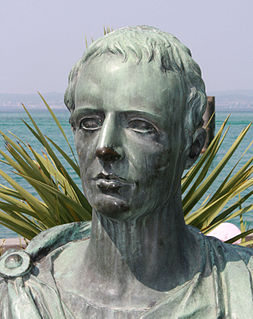A Quote by Plautus
I love truth and wish to have it always spoken to me: I hate a liar.
[Lat., Ego verum amo, verum volo mihi dici; mendacem odi.]
Related Quotes
When I was a boy, the priest, my uncle, carefully inculcated upon me this proverb, which I then learned and have ever since kept in my mind: 'Dico tibi verum, Libertas optima rerum; Nunquam servili, sub nexu vivito, fili.' 'I tell you a truth: Liberty is the best of things, my son; never live under any slavish bond.'
"What is truth?" said jesting Pilate, and would not stay for an answer. Pilate was in advance of his time. For "truth" itself is an abstract noun, a camel, that is, of a logical construction, which cannot get past the eye even of a grammarian. We approach it cap and categories in hand: we ask ourselves whether Truth is a substance (the Truth, the Body of Knowledge), or a quality (something like the colour red, inhering in truths), or a relation ("correspondence"). But philosophers should take something more nearly their own size to strain at. What needs discussing rather is the use, or certain uses, of the word "true." In vino, possibly, "veritas," but in a sober symposium "verum."


































